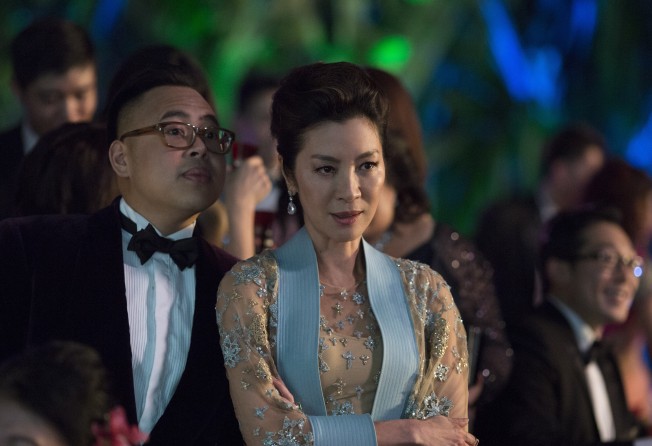Changing stereotypes and a world of Crazy Rich Asians
Blockbuster film raises some issues about stereotypes, but it should be enjoyed for what it is – a story that matters

Much has been made of the potential impact of the box office success in the United States of the film Crazy Rich Asians. From heartfelt social media posts by Asian-American celebrities and everyday people to widely watched appearances on news and entertainment programmes by the film’s cast, director and author, the hope is palpable the film could lead to broadening the representation of Asians and Asian-Americans in US films.
In parts of Asia, including Singapore where I am now based, some of the reactions to the film have had an added, sometimes critical dimension. Some critics have called out the lack of economic and ethnic diversity of the Singaporeans portrayed on screen.
Where are the Singaporeans of Malay and Indian descent? What is the change, they ask, that many are heralding in a film that focuses solely on the richest of the rich among Singapore’s ethnic Chinese?
For me, an Asian and Chinese-American, that discussion should be welcomed as part of a drive for change but should not distract from the film – a movie that matters. The film remains an important step forward and one that Kevin Kwan, author of the book Crazy Rich Asians, on which the film is based, and I addressed on stage at a “Mic’d Up” session at the annual Milken Institute Global Conference in Los Angeles earlier this year. Our theme was a world in transition – including, as Kwan’s book and film make clear, the rise of wealth in Asia, and the rising visibility of Asians and now, Asian-Americans, and Chinese and Chinese-Americans.
That same changing world is very visible in Hong Kong and also across Southeast Asia, with the rising visibility of mainland tourists, state-owned enterprises and businesses.
Some 25 years have passed since the last major Hollywood production to generate a similar buzz and hopes for change. That was The Joy Luck Club, brought to screen by Hong Kong-born American film director Wayne Wang in 1993 and based on author Amy Tan’s bestselling novel of four Chinese-American women and their mothers, born in feudal China.
Set primarily in Singapore and starring a nearly all Asian and Asian-American cast, the Warner Brothers-distributed film directed by Jon M. Chu has sold some US$85 million in tickets in its first two weeks of release.
Here’s a brief summary of the movie’s plot: Crazy Rich Asians tells the story of native New Yorker and economics professor Rachel Chu (Constance Wu) as she accompanies her boyfriend Nick Young (Malaysian actor Henry Golding), to his best friend’s wedding in Singapore. Little does Rachel know that Nick is scion of one of Singapore’s wealthiest families.
Left out of the book and the film, which does the novel great justice (full disclosure: I’m a fan), even amidst the wealth of personalities that populate the world of the “crazy rich” is the diversity of everyday Asians, Asian-Americans and Singaporeans. The movement toward greater representation and inclusion though is much more than a single film.
However, far from America’s west coast, there’s another story unfolding that might add to the discussion, and ultimately to a better understanding of the diversity of and challenges facing Asians in America.
There, a lawsuit filed by “Students for Fair Admissions” continues against Harvard University over alleged discrimination against Asian-American applicants in violation of civil rights law. The group has gone to court backed by an analysis of more than 160,000 student records it says shows Harvard consistently rated Asian-American applicants lower than others on traits like “positive personality”, likeability, courage, kindness and being “widely respected” – “personal ratings” that significantly lowered their admission chances.
Harvard has vigorously disagreed with the allegations.
Whatever the outcome, that case and the film have one clear point in common: the need for a changing world to move beyond old stereotypes and look at all our fellow people as individuals. That is as true in the United States as it is across Asia, including Singapore and Hong Kong. Ponder that, but first enjoy the movie and the crazy richness of it all.
Curtis Chin served as the US ambassador to the Asian Development Bank under former presidents George W. Bush and Barack Obama, becoming only the fourth US ambassador of Chinese heritage. He now serves as managing director of advisory firm RiverPeak Group